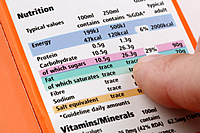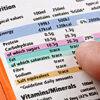When is natural unnatural or organic?
Headline: “PepsiCo to no longer call Naked Juice ‘natural.’”
Naked Juice, made of natural fruit juices has an “added boost of vitamins” according to its label. Those vitamins are synthetic, which is why consumer advocacy groups complained. PepsiCo announced they would stop using the term “natural” until there is regulatory guidance.
PepsiCo’s announcement made me stop and wonder, “is there no regulatory guidance for the term ‘natural’?”
I did some research and found out that PepsiCo has a point, but they are wrong. The FDA explains why they don’t define what “natural” means. From the FDA site: “From a food science perspective, it is difficult to define a food product that is ‘natural’ because the food has probably been processed and is no longer the product of the earth.” That said, the FDA has not developed a definition for use of the term natural or its derivatives. However, the agency has not objected to the use of the term if the “food does not contain added color, artificial flavors, or synthetic substances.”
PepsiCo is disingenuous in stating there is no guidance. There is a little guidance and under even those skimpy requirements, Naked Juice is not natural. PepsiCo is right to remove the term and should have known not to use it. But why don’t they replace the synthetic vitamins with ones that qualify as natural? They charge about $4 per bottle, can crushed fruit and veggies really cost that much?
A federal judge recently asked the FDA to advise whether food manufacturers can label foods as “natural” when they contain genetically modified ingredients. Until the FDA makes a decision, genetically modified foods are not restricted from using the word “natural.”
What is healthy?
Headline: Drink deception and the legal war on Vitaminwater
Coca Cola is being sued because Vitaminwater makes claims to be healthy. The Center for Science in the Public Interest is objecting to marketing claims, “that the drink could reduce eye disease, promote healthy joints and support ‘optimal immune function.’” Coca Cola’s response? “No consumer could reasonably be misled into thinking Vitaminwater was a healthy beverage.” Well color me blush red. I used to drink that stuff thinking the vitamins were helping me until I realized I was gaining a LOT of weight.
Products that claim to be “healthy” are required by the FDA to meet criteria limiting the amount of fat, saturated fat, cholesterol, and sodium. It requires specific minimum (but not maximum) amounts of vitamins, minerals, or other beneficial nutrients. (FDA)
Can you fake organic?
Presently Kashi cereal is under fire from many websites because it contains a mixture of grains that include (by some reports) up to 45% GMO (genetcially modified organism) grains. (See this article by Marjorie Olsterfor an updated discussion of GM foods.) Kashi has devoted a portion of its website to address this issue. Their defense is that 80% of the grains grown in the US are GMO and they can’t find enough organic, non-GMO product to fill the demand for their cereal. So because we want healthy, organic cereal, they have to mislead us.
“Organic” is regulated by both the USDA and the FDA and refers to the way that products are grown and processed. The USDA has established the National Organic Program which defines organic agricultural products as those produced using practices that foster cycling of resources, promote ecological balance, and conserve biodiversity.
The USDA has also created the “National List of Allowed and Prohibited Substances” (National List). On it is every synthetic substance that is permitted and each natural substance that is prohibited for organic production. It gets complicated on how substances are evaluated. Let’s just say it involves circular examples such as: “certain gums and high methoxy pectin are listed as agricultural substances whereas the definition of “nonagricultural substances specifically mentions these substances as examples of nonagricultural substances.” To explore this further, start with FDA Law Blog. (This blog is from a private law firm, not the FDA.)
The National List is playing a role in defining “natural.” In lawsuits regarding “natural” claims, plaintiffs have successfully referenced the National List to make the claim that a food did not qualify for the term “natural.”
All these lawsuits are an indication that consumers are beginning to demand clear, honest and understandable labels. We deserve nothing less than to know what is being sold to us as natural, healthy and organic.






